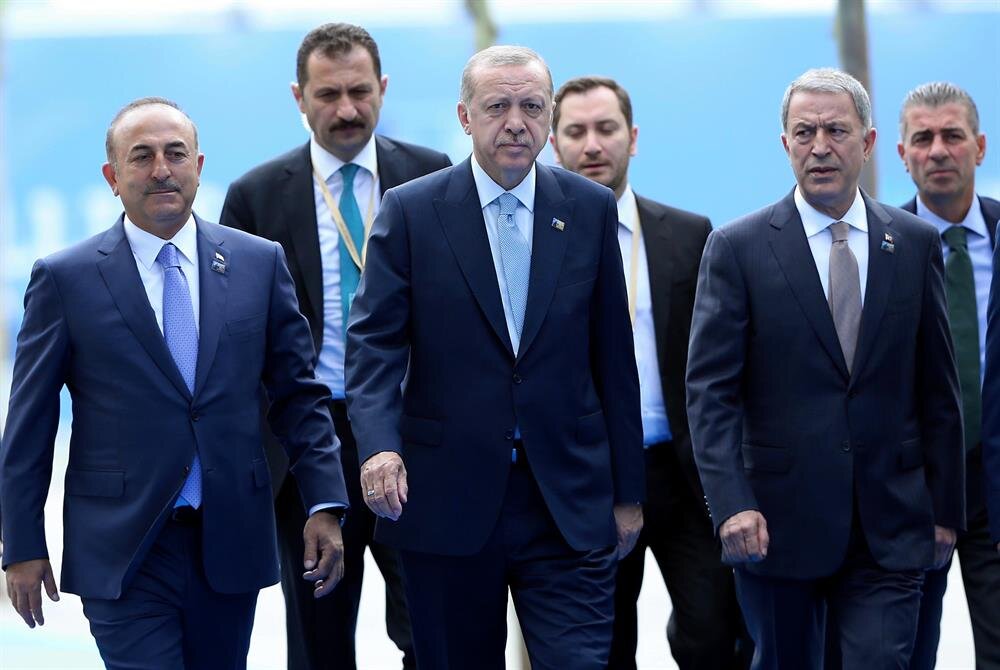- Turkey’s Erdogan recently threatened to strike the capital of Greece with ballistic missiles.
- In response, Greece’s top diplomat accused its fellow NATO ally of acting like North Korea.
- The two countries, which joined NATO together, have a historically troubled and rocky relationship.
Greece’s top diplomat accused NATO ally Turkey of bringing a “North Korean-style” attitude to the military alliance after Turkish President Recep Tayyip Erdogan threatened the country with missiles.
“Threatening Greece with a missile attack by a NATO ally is both unacceptable and utterly condemnable,” Greek Foreign Minister Nikos Dendias told reporters at the European Union in Brussels on Monday.
He added that “North Korean-style attitudes cannot and must not be allowed to enter into the North Atlantic Alliance,” a nod to illegal weapons development, hostile rhetoric, missile launches, and other provocative military acts by Pyongyang widely condemned by neighboring South Korea and much of the West.
Dendias’ comments came shortly after Erdogan traveled over the weekend to a city in northern Turkey for a town hall meeting, where he said the country had started developing short-range ballistic missiles, the Associated Press reported. Erdogan said the development was “frightening” Greece.
The Greeks “say ‘It can hit Athens,'” Erdogan said, according to the report. “Of course it will. If you don’t stay calm, if you try to buy things from the United States and other places [to arm)] the islands, a country like Turkey … has to do something. “
Despite the fact that both countries are part of NATO — even joining the alliance together in 1952 — the two countries historically have endured a troubled and rocky relationship. Athens and Ankara have come close to war on several occasions, and ties between the two countries have only worsened in recent years.
Their tensions are rooted in disputes surrounding islands in the Aegean and Eastern Mediterranean seas and include issues related to maritime boundaries, divided Cyprus, and militarization.
In September, Erdogan accused Greece of occupying demilitarized islands in the Aegean Sea and threatened that Turkey could “come down suddenly one night” — a cryptic remark possibly hinting about a future attack. “Look at history, if you go further, the price will be heavy,” he said.
His comments drew sharp criticism from Greece, which warned its allies that such rhetoric could trigger another conflict in Europe, apparently alluding to Russia’s unprovoked war in Ukraine.
Ongoing tensions between Turkey and its NATO allies extend beyond Greece, too. In recent weeks, Turkey has targeted the US-backed Syrian Democratic Forces (SDF) in a bombing campaign after a deadly blast rocked Istanbul earlier in November. The campaign has added stress to the US partnership with the SDF, which Washington supports and works closely with in counterterrorism operations against ISIS. The US has also warned Turkey that its actions have put US forces at risk.
Source: Business Insider


